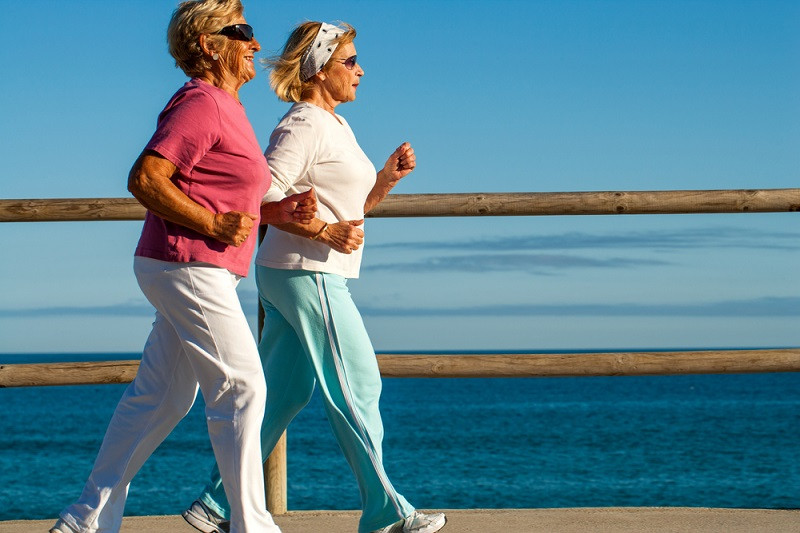Popular Reads
Top Results
Can't find what you're looking for?
View all search resultsPopular Reads
Top Results
Can't find what you're looking for?
View all search resultsExercise could boost mental health in menopausal women
Change text size
Gift Premium Articles
to Anyone
A
new European study has found that physical activity appears to boost well-being for women at all stages of menopause and could also help post-menopausal women reduce symptoms of depression.
Carried out by researchers from the University of Jyväskylä, and Central Finland Hospital, Finland, the new study looked at 1,098 women aged 47 to 55 and asked them to self-report their mental well-being and levels of physical activity.
To determine the women’s stage of menopause, the researchers asked them to keep a menstrual diary and took blood samples to record their hormone concentrations. Using this data, 304 women were classed as pre-menopausal, 198 were early peri-menopausal, 209 were late peri-menopausal and 387 were classed as postmenopausal.
The findings, published in the journal Menopause, showed that premenopausal women had fewer depressive symptoms than postmenopausal women, although menopause was not linked to the women’s feelings of life satisfaction, or how positive or negative they felt.
However, the researchers also found that the women who had a high level of physical activity appeared to have fewer depressive symptoms, as well as higher satisfaction with life and a more positive outlook than those with a low level of physical activity.
Read also: International Women’s Day 2020: Four ways women can boost their health
“According to our research, postmenopausal women had more depressive symptoms than peri- or premenopausal women,” says doctoral student Dmitriy Bondarev. “At the same time menopause was not related to positive mental well-being.”
“Physically active women had lower depressive symptoms, had higher positive affectivity scores and were more satisfied with life in comparison to inactive women,” Bondarev explains.
“Thus, being physically active during the menopausal transition may help to withstand the negative influence of menopause on depressive symptomatology and spare positive mental well-being.”
The researchers explain that the menopausal transition, which occurs on average between the ages of 46 and 52, is divided into three stages; pre-menopause begins five to ten years before menopause; perimenopause is the phase before the last menstruation; post-menopause is the phase after the last menstruation.
Although it is well-known that menopause has a physical effect on women, less is known about how it can affect mental health and well-being. The team commented that the new findings suggest that no matter what menopausal stage women are in, physical activity was beneficial for mental well-being.











